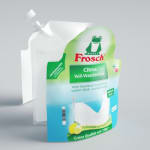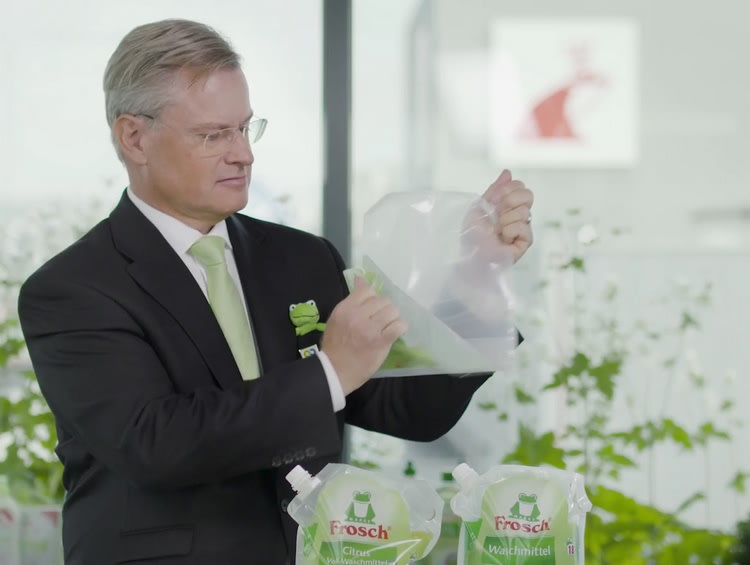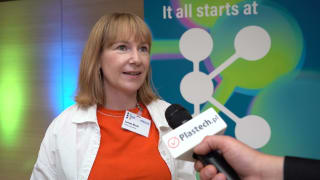 After almost three years of development, Mondi and Werner & Mertz will introduce a new, patented innovation in 2019: a 100-percent recyclable pouch with detachable decorative panels. The pouch replaces conventional flexible packaging for Frosch products. The pioneering design overcomes many shortcomings of the recycling process and is the result of a joint effort by Werner & Mertz, Mondi, EPEA Switzerland (Cradle to Cradle), Der Grüne Punkt – Duales System Deutschland and Institut cyclos-HTP.
After almost three years of development, Mondi and Werner & Mertz will introduce a new, patented innovation in 2019: a 100-percent recyclable pouch with detachable decorative panels. The pouch replaces conventional flexible packaging for Frosch products. The pioneering design overcomes many shortcomings of the recycling process and is the result of a joint effort by Werner & Mertz, Mondi, EPEA Switzerland (Cradle to Cradle), Der Grüne Punkt – Duales System Deutschland and Institut cyclos-HTP. Mission Impossible?
In 2014 Werner & Mertz decided to develop packaging that is recyclable in the fullest sense. This was before most fast moving consumer goods (FMCG) companies viewed a commitment to sustainability as an indispensable building block for brand equity. Several packaging suppliers told them it could not be realised. Then they met Mondi.The project was truly ambitious. It was not about developing flexible plastic packaging that is only theoretically recyclable - packaging likely to end up in landfill. Rather, the design aim was to "reverse-engineer" the recycling process: to create packaging fit for every stage of the recycling process.
The challenges of true recycling
A crucial and often neglected step in the recycling process is sorting. Failure to sort the collected packaging into material streams that recyclers can use leads to down-cycling - that is, the production of recycled material no longer suitable for its original application. "If you want to avoid a 'garbage in, garbage out' scenario," explained Immo Sander, Head of Packaging Development, Werner & Mertz Group, "the entire value chain must be aligned - from packaging producers through players in sorting and recycling to buyers of recycled material." This is the aim of the Recyclate Initiative that Werner & Mertz launched in 2012.
Reinhard Schneider, CEO Werner & Mertz, "undresses" the Frosch pouch
In order to develop packaging that would yield high-end recycled material, Werner & Mertz and Mondi consulted multiple recycling experts: Der Grüne Punkt - Duales System Deutschland, EPEA Switzerland as well as Institut cyclos-HTP for later certification.
The packaging needed to be made of a polyethylene mono-material, which is a prerequisite for recycling. "Our collaboration with Werner & Mertz shows, in the best possible way, how challenges can become solutions," said Jens Kösters, Manager Technical Services, Mondi Consumer Goods Packaging.


